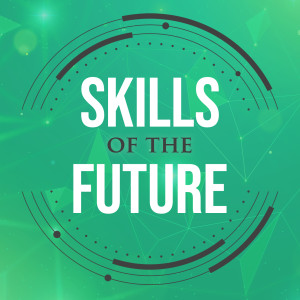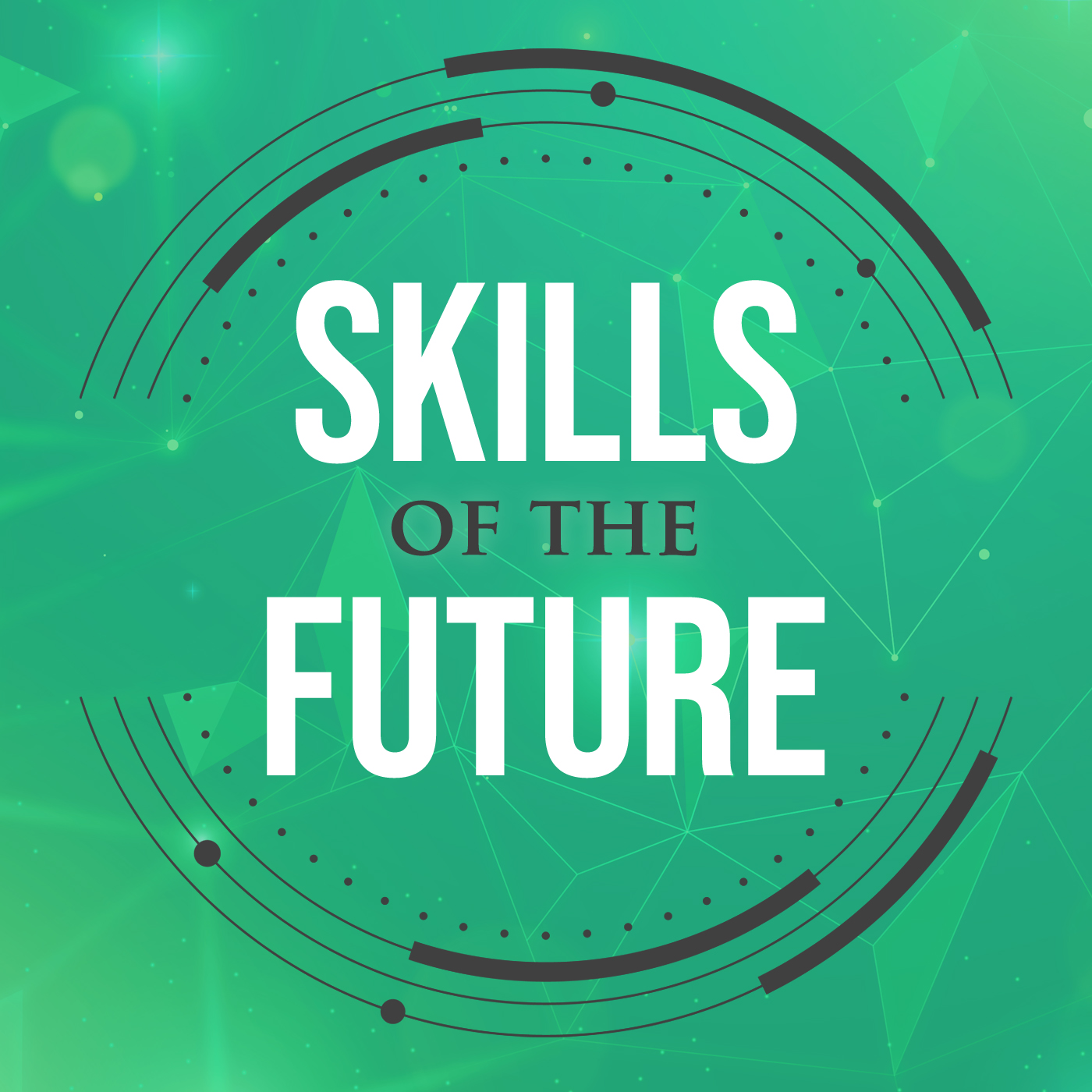Episodes

Tuesday Jul 19, 2022
Competencies and Talent Mobility - with Cindy Plunkett
Tuesday Jul 19, 2022
Tuesday Jul 19, 2022
In this episode, Andrea Butler interviews Cindy Plunkett about competencies and talent mobility.
The key takeaways from this episode:
- One challenge with competencies is that they are not easy to write. Because they capture both behaviours and skills in action, when developing competencies for a specific domain (e.g., marketing, customer care), there is often a lot of back and forth and time and effort required.
- You need the competencies written really well first, and customized to your organization, before you can start using them for talent applications like talent mobility.
- Foundational competencies are a great place to start. Competencies like Innovation or Teamwork that you really want to see in every employee. What’s great is you can link these competencies to interview questions to make sure you are hiring people that align to these foundational competencies.

Tuesday Jul 19, 2022
Defining and Rolling Out Competency Models - with Adam Culligan
Tuesday Jul 19, 2022
Tuesday Jul 19, 2022
In this episode, Andrea Butler interviews Adam Culligan about defining and rolling out competency models.
The key takeaway from this episode:
-
Off-the-shelf competency solutions rarely work. You need to get your business involved to see how competencies will best work for you and your organization. When rolling competencies out for the first time, it’s critical to get input from people who know the roles and the organization well.
-
Key competencies right now that come up again and again across many organizations are agility and empathy.
- Competencies can help to improve retention by fostering a culture where everyone has clear expectations of what is required of them and what successful performance looks like.

Wednesday Jul 13, 2022
Competencies over Coffee - with Amanda Frawley
Wednesday Jul 13, 2022
Wednesday Jul 13, 2022
In this episode, Dan van der Werf interviews Amanda Frawley about implementing competencies for the first time.
The key takeaway from this episode:
-
One method for rolling out competencies for the first time is to run a workshop to introduce them. In the workshop, you can talk through each competency, and have people share an experience of when they used the competency. For example, you could introduce the competency of problem-solving, and then ask people to share an example of when they solved a problem using some of the behaviours within the competency. What’s nice is that the variety of examples should show how competencies apply to different levels within the organization.
-
Without competencies, developmental feedback can be very vague and not very actionable. Sometimes managers struggle to articulate useful feedback for their employees. Having competencies creates a common language around what successful performance looks like, which allows managers and employees to have these developmental conversations using this shared language.

Wednesday Jun 01, 2022
Applying Company Values Across the Talent Lifecycle - with Aman Malhi
Wednesday Jun 01, 2022
Wednesday Jun 01, 2022
In this episode, Dan van der Werf interviews Aman Malhi about bringing company values to life and applying them across the talent lifecycle
The key takeaway from this episode:
-
When defining core values, it’s important to keep them simple and focus on the most critical values. Having a long list of hundreds of values is not super helpful. To reduce many values to a smaller number of critical values, you can put your values through a ‘stress test.’ That is, when deciding on a value, think about if you come across someone who does not live that value, are you prepared to part ways? If the answer is no, the value is not important enough. Every core value should go through this sort of ‘stress test.’
-
After your core values are in place, you can start using them for a variety of talent management applications. For example, in hiring, your values can be highlighted in job descriptions and job ads. Values should describe the behaviours that you want people to live every day. Interview questions can be asked that assess these behaviours that are linked to the core values.

Friday May 20, 2022
Defining Competency Models for Talent Management - with Delana McKinsley
Friday May 20, 2022
Friday May 20, 2022
In this episode, Andrea Butler interviews Delana McKinsley about using competency models for talent management.
The key takeaway from this episode:
- Three competencies that are important right now for most jobs include Change Leadership (i.e., navigating and leading all the changes going on right now), Agility (i.e., maneuvering quickly), and Tenacity/Grit (i.e., following through on the changes).
- Ensure that competency models and the resulting tools are truly an integrative practice and living in the day-to-day. It has to be meaningful to the end-user and provide an individualized experience.

Wednesday May 18, 2022
Wednesday May 18, 2022
In this episode, Dan van der Werf interviews McKenzie Hunter about using job descriptions and competencies for hiring and career growth.
The key takeaway from this episode:
- When developing job ads from job descriptions it’s important to call out the 'need to have' rather than the 'nice to have'. Many qualified people won’t apply if they don’t hit all the requirements listed.
- When hiring using competencies, it's critical to use a structured interview. Ask candidates questions that are directly linked to the competencies required for the job, and ask the same questions in the same order to reduce bias as much as possible.
- Career paths are less of a ladder and more of a jungle gym. The real crux of an effective career pathing program is having tailored development plans for each employee.

Tuesday May 10, 2022
Competencies and Performance Management - with Basmah Ismail-Sidi
Tuesday May 10, 2022
Tuesday May 10, 2022
In this episode, Andrea Butler interviews Basmah Ismail-Sidi about competencies and performance management.
The key takeaway from this episode:
- Performance management should be an ongoing process, not a once-a-year thing. There should be built-in continual feedback. In addition to feedback, the company’s strategic goals and objectives should be shared with everyone so that they can ensure alignment with their individual goals.
- It’s important to distinguish between performance management and professional development. These two functions are related but should be kept separate.
- Employee and leadership buy-in to your performance management program is key.

Wednesday May 04, 2022
From strategy to execution: Helping managers to be successful - with Aaron Byers
Wednesday May 04, 2022
Wednesday May 04, 2022
In this episode, Andrea Butler interviews Aaron Byers about helping managers to execute strategy.
The key takeaway from this episode:
- To execute strategy effectively, it’s important that all employees feel that they are valued members of the team and contributing to the work. This is easier said than done! Managers can support this by clearly stating the desired results (e.g., This is where we are going to end up. This is what we want to see happen). Managers can then facilitate conversations with employees, unpacking the desired results, and asking employees what they can do to help achieve those results? When goals or objectives come from the employee and are not handed down from superiors, there will be more buy-in right from day one. This is also how employees can see the value in their work.
- Three skills that are critical for managers to be able to execute strategy are curiosity, trust, and accountability
- Curiosity is about being able to ask the right questions. Digging into the strategy and exploring how it can be executed. Asking as many questions as possible and getting it all out there.
- Trust is also critical and can often be earned by showing character and competence.
- Accountability is about tracking results and progress, embracing mistakes, and viewing mistakes from a learning standpoint so they are not made again.

Wednesday Apr 27, 2022
Applying Competencies Across the Talent Lifecycle - with Nicci Esterhuizen
Wednesday Apr 27, 2022
Wednesday Apr 27, 2022
In this episode, Dan van der Werf interviews Nicci Esterhuizen about applying competencies across the talent lifecycle.
The key takeaway from this episode:
-
One of the beneficial uses of competencies is for learning and development. Having a competency framework in place can help you to conduct a skills gap analysis. You can identify areas of strength and areas for improvement, and design targeted development around that. A mature competency framework adds rigor and structure to the whole L&D process.
-
Scope and complexity can be a challenge when implementing competencies in a large organization. One helpful solution is to group roles into job families where similar competencies are required for success. Doing so enables processes to work a bit quicker.
-
When defining competencies for a role, it’s critical to keep the role in mind (not any specific person in that role). It’s also important to define roles in terms of minimum acceptable performance, not all-star performance.

Tuesday Apr 19, 2022
Adaptability and Talent Attraction - with Olivia Ecker
Tuesday Apr 19, 2022
Tuesday Apr 19, 2022
In this episode, Andrea Butler interviews Olivia Ecker about adaptability and talent attraction.
The key takeaway from this episode:
- Adaptability is an important competency required for many jobs, especially in this post-pandemic environment. Organizations are looking for people who are adaptable, who can reprioritize, and work on multiple projects at the same time in a fast passed environment. Adaptable people look at challenges as opportunities and thrive under uncertainty.
- To hire people who are adaptable, you need to be able to assess their adaptability skills. One way is to ask behavioral interview questions that tap into adaptability as it relates to the context of the role.

